WANT to get physical' The 75th Ranger Regiment, an elite, light-infantry special operations force, may be for you.
Volunteers for Ranger training must meet some of the most exacting physical standards in the Army. Rangers are widely considered the world's premiere raiding force, and as such, its standards for combat readiness are high. Flexible, highly trained and rapidly deployable, Rangers maintain the specialized skills necessary to deploy against targets anywhere in the world within 24 hours notice.
Returning recently from a tour in Iraq, one of the Army's three Ranger battalions reportedly carried out a staggering 350 missions over a four-month period. Many of these missions were against some of America's toughest enemies and resulted in more than 350 enemy fighters killed, 750 apprehended, and the seizure of large quantities of weapons, explosives and enemy documents. The battalion earned 60 Bronze Star medals while operating with less than 600 troops.
Rangers take great pride in their fighting legacy. Rogers' Rangers was an independent company of American rangers attached to the British army during the French and Indian War. The unit was led by Maj. Robert Rogers and was fielded as a rapidly deployable, light-infantry force tasked with reconnaissance and conducting special operations against distant targets.
Their military tactics were so bold and effective that the unit became the chief scouting unit of British Crown forces in the late 1750s. The British valued them highly for gathering intelligence about the enemy. Later, several members of Rogers' Rangers became influential leaders in the American Revolutionary War and a large number of ex-Rangers were present as patriot militiamen at the Battle of Concord Bridge.
Army Rangers carried the fight throughout the European theater during World War II, and are best known for coming ashore at Pointe Du Hoc during the Allied invasion at Normandy, France, June 6, 1944. While under enemy fire, they scaled 300-foot cliffs to eliminate German artillery positions at the top. Filmmaker Steven Spielberg chose the Rangers as his protagonists in the popular film, "Saving Private Ryan," which depicted the ferocity of the fight on Omaha Beach.
Rangers have also played a vital role in Korea, Vietnam, Grenada, Panama and Somalia. Throughout their long history Rangers have thrived on hard work, tough environments and taking the fight to the enemy.
The 75th Ranger Regiment continues to make critical contributions to the fight against terrorists. Over the past eight years, one or more of the Ranger battalions has been deployed supporting operations in either Afghanistan or Iraq. Simultaneously, the 75th completed the first major change to its force design since 1984, adding a fourth line company to each infantry battalion, as well as a Special Troops Battalion. Headquartered at Fort Benning, Ga., the regiment also maintains battalions at Fort Benning; Hunter Army Airfield, Ga.; and Fort Lewis, Wash.
When not combat deployed, Rangers train to maintain their edge in airborne and air assault operations, raids, ambushes, airfield seizures, long-range reconnaissance and recovery of personnel and special equipment, among other actions. While combat deployments are typically not as long as conventional deployments, the period is intense, and Rangers run constant operations in austere environments, mostly at night.
Ranger candidates attend the four-week Ranger Indoctrination Program to hone weapons and combat skills. Ranger School itself lasts 61 days, with training averaging nearly 20 hours each day. The multi-phase course includes training in warfighting techniques suited to tough environments such as mountains, jungles and swamps. Training emphasizes exercising tactical leadership under conditions of extreme stress and exhaustion. Those who receive the coveted Ranger tab have earned it and carry on the legacy of Rangers leading the way.
THE RANGER CREED
THE Ranger Creed is the hallmark of the spirit, discipline, and duty of all Rangers and the standard by which all Army Rangers conduct themselves. Its roots go back to the "Standing Orders" of Roger's Rangers, with such simple, battle-tested guidelines as: "Have your musket clean as a whistle, hatchet scoured, 60 rounds of powder and bell, and be ready to move at a minute's warning." And, "Let the enemy come till he's close enough to touch. Then let him have it and jump out and finish him up with your hatchet."
To this day, when a Ranger says, "Lead the way," it is as much a statement of 'intestinal fortitude,' as it is an unwavering, out-in-front commitment to the fight.
Recognizing that I volunteered as a Ranger, fully knowing the hazards of my chosen profession, I will always endeavor to uphold the prestige, honor, and high "esprit de corps" of the Rangers. (see footnote)
Acknowledging the fact that a Ranger is a more elite Soldier who arrives at the cutting edge of battle by land, sea, or air, I accept the fact that as a Ranger my country expects me to move farther, faster and fight harder than any other Soldier.
Never shall I fail my comrades. I will always keep myself mentally alert, physically strong and morally straight and I will shoulder more than my share of the task whatever it may be. One-hundred percent, and then some.
Gallantly will I show the world that I am a specially selected and well-trained Soldier. My courtesy to superior officers, neatness of dress and care of equipment shall set the example for others to follow.
Energetically will I meet the enemies of my country. I shall defeat them on the field of battle for I am better trained and will fight with all my might. Surrender is not a Ranger word. I will never leave a fallen comrade to fall into the hands of the enemy and under no circumstances will I ever embarrass my country.
Readily will I display the intestinal fortitude required to fight on to the Ranger objective and complete the mission though I be the lone survivor. Rangers lead the way!
Footnote:
Members of the 75th Ranger Regiment will replace "the Rangers" with "my Ranger Regiment."
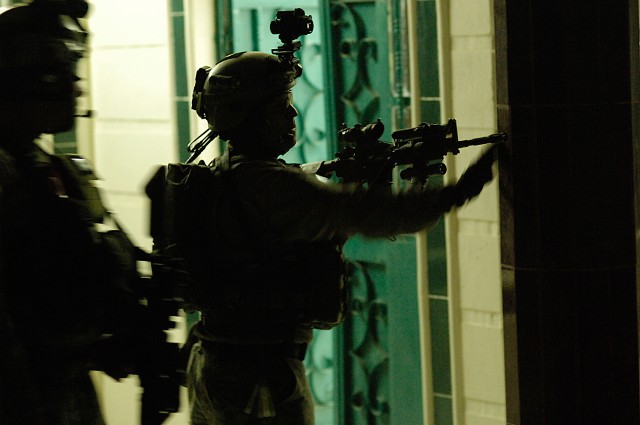
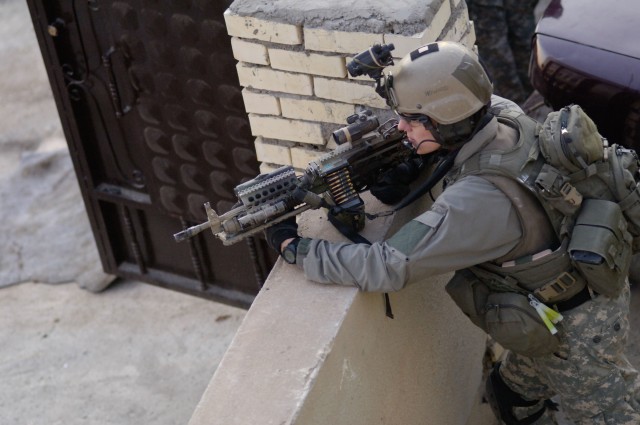

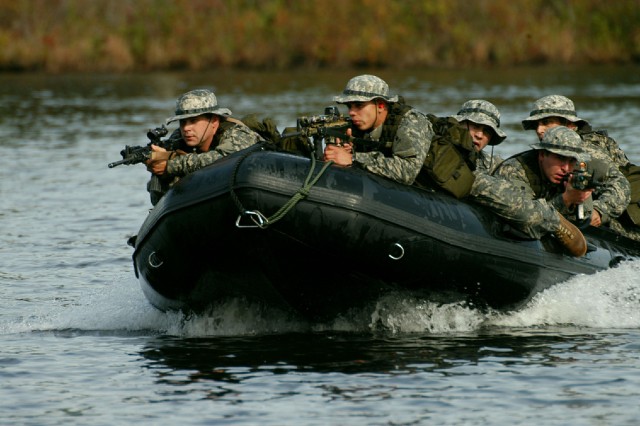


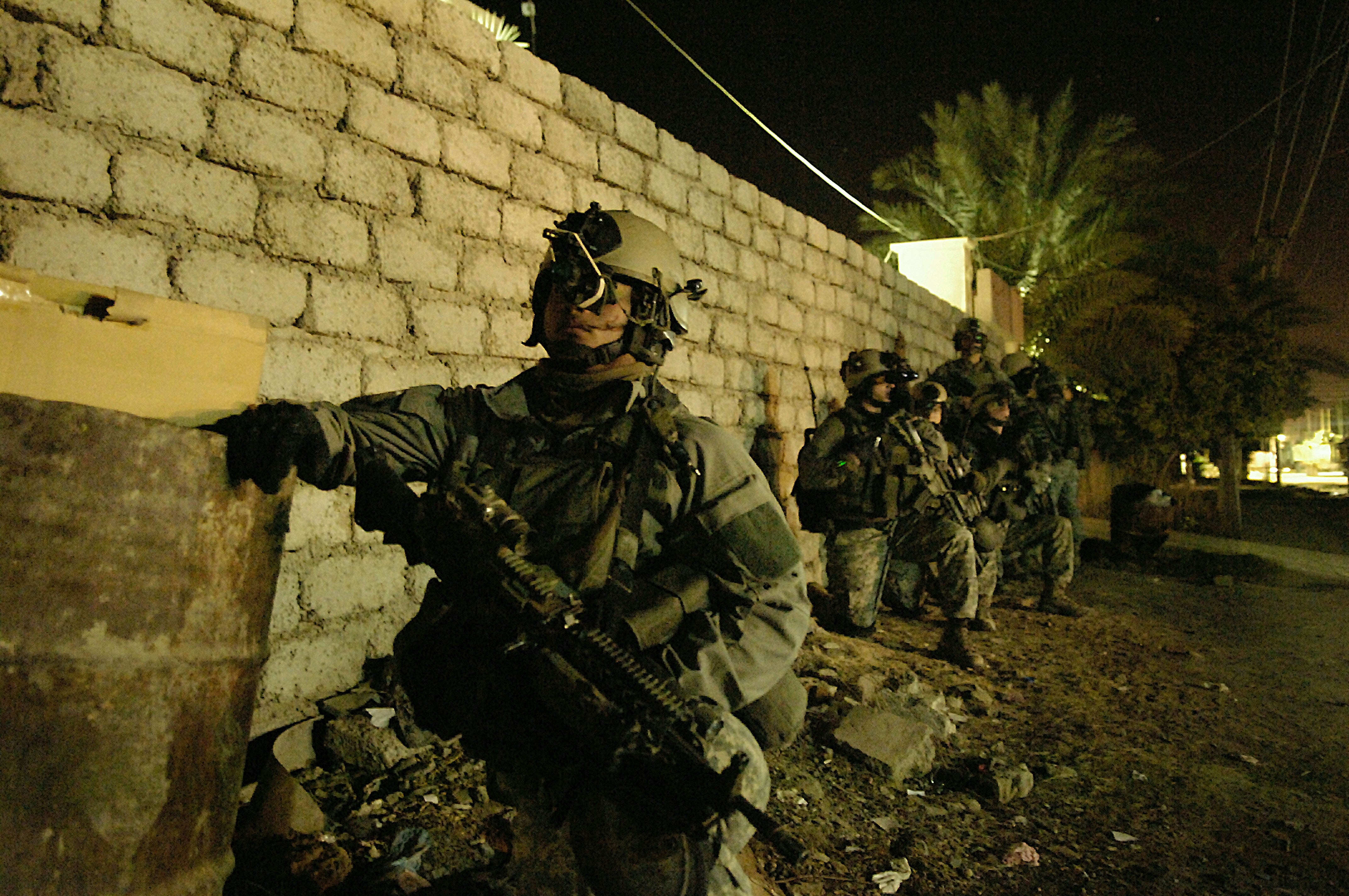
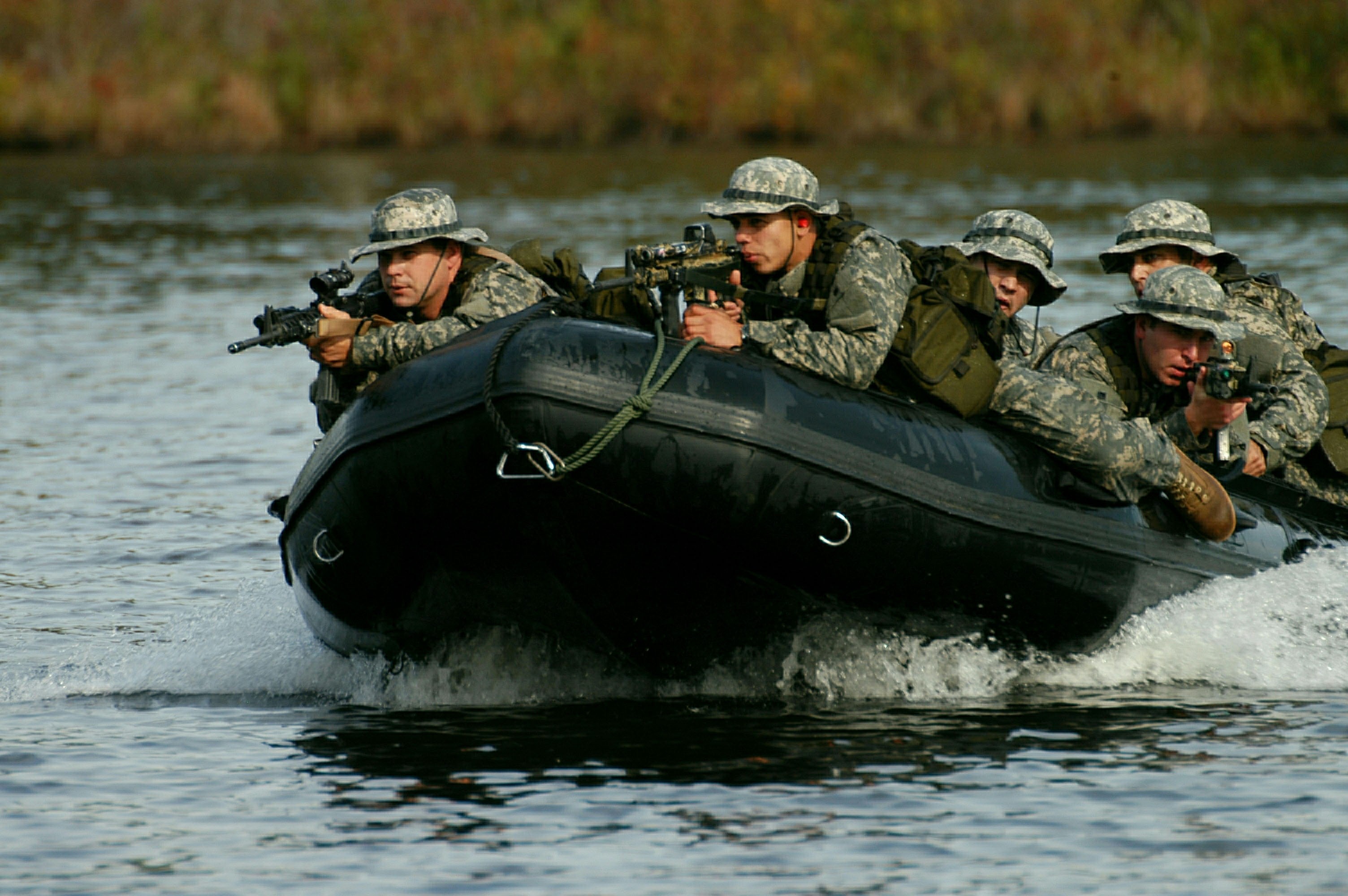
Social Sharing